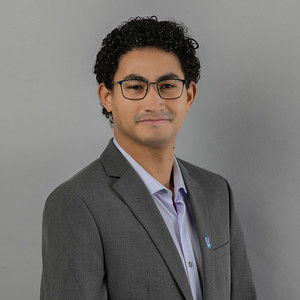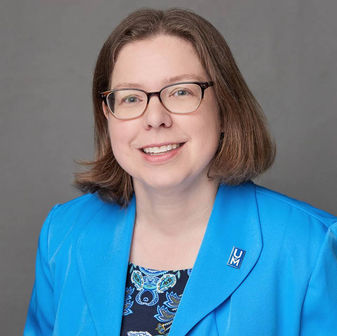

A New Frontier For Entrepreneurship
The University of Memphis and Epicenter have partnered to create a new program designed to hire post-doc fellows to start businesses, utilizing patented intellectual property developed both in Memphis and across the United States, to turn great ideas into successful companies. The Patents2Products Post-Doc program, launched by the FedEx Institute of Technology, creates a two-year funded position for research entrepreneurs and provides them with the necessary tools for launching a successful startup.
For more information, contact postdoc@memphis.edu.
Included in the Program
P2P Fellows are hired in a university position with the UofM and provided with a salary and state benefits for two years, plus funds for initial startup costs, as well as licensing rights to intellectual property. Participants have access to the researchers and labs where the University intellectual property was developed, and are provided office space in either the UMRF Research Park or campus facility, as requested. The fellow positions are appointments to the FedEx Institute of Technology and work closely with Epicenter mentors and advisors as they develop their company and business plans. Through the partnership with Epicenter, the fellows are made aware of channels for funding opportunities as appropriate for their industries of focus.
Entrepreneurship Curriculum
Powered by Epicenter
The entrepreneurial curriculum is custom-built around the post-doc's experience and startup opportunity. It comprises components from NSF's I-Corps, Kauffman Foundation's FastTrac TechVenture, and other proven startup methods. In addition, post-docs are provided mentors and coaches from across our extensive network of CEOs, investors, domain experts and executives.
P2P Company Ventures
Company Name: PoPCheck Technologies
Postdoc Name: Erika Dillard, MD, PhD
Faculty Mentor: Dr. Amy Curry
Website: popchecktechnologies.com
At PoPCheck, our purpose is to save lives by preventing surgical complications before they occur. Our mission is to create technology based on models of exceptional, safe, effective, equitable, and accessible care that enable patients to recover from surgical procedures, stress-free. Postoperative care and monitoring for patients who have just had surgery is often undervalued. It is during the first fourteen days after surgery that most patients will experience complications and often after discharge from the hospital. Of these complications, one of the most common, potentially life-threatening yet preventable is the development of venous clots. We are currently developing technology in the form of a medical device that will utilize electrical muscle stimulation (EMS) to activate peri-venous muscles inducing venous flow. We will then utilize a non-invasive method for measuring changes in blood flow associated biomarkers over time that will allow the early detection of clot formation.
Company Name: MakeScope
Postdoc Name: Cong Van, PhD
Faculty Mentor: Drs. Chrysanthe Preza, Ana Doblas
Website: makescope.us
At MakeScope, we turn a classical fluorescence microscope into a super-resolution (SR) one, which can be used for the diagnosis of kidney disorders, kidney cancer, and blood diseases. We do this by attaching a patented component into the current classical microscope. Besides the super-resolution component, we also provide cloud-based software to process the images taken by the super-resolution microscope. Moreover, we provide an affordable 3D-printed SR microscope for education purposes, especially for STEM students.
Company Name: Nutt Bio
Postdoc Name: Leta K. Nutt, PhD
Faculty Mentor: Drs. Karyl Buddington, Gary Bowlin and Amy Curry
Website: nuttbio.com
There are 70 million stray animals in the United States with a 1-billion-dollar burden to taxpayers for catching, caging and killing strays each year. Currently, the only solution to this epidemic is to surgically remove the sex organs of cats and dogs. Surgery is intrusive, has associated risks, requires sterile facilities and a monitored recovery time. Furthermore, there are not enough veterinarians in the U.S. to perform the number of surgeries necessary to solve this problem. Nutt Bio has developed TriSteris, a non-surgical, intratesticular injectable sterilant to address this problem in a more cost-effective manner, thereby increasing the number of sterilizations performed, which in turn will better control animal numbers. This method is easily administered in a field setting by anyone. A solution of this magnitude would result in a paradigm shift in animal welfare.
Company Name: TBD
Postdoc Name: Mohit Ganguly, PhD
Faculty Mentor: Dr. Amber Jennings
Our patented coating protects surgical equipment and clinical surfaces from getting infected and helps reduce hospital-acquired infections. Our product aims to deliver remarkable improvements in the reduction of hospital-acquired infections thereby saving the healthcare providers potential millions of dollars in the future.
Company Name: Nuvelus
Postdoc Name: Ryan Hughes, PhD
Faculty Mentor: Dr. Gary Bowlin
Website: nuvelus.com
Almost 20% of all Americans suffer from some skin abnormality, often a result of an underlying disease. These include psoriasis, dermatitis, and eczema. The visual side effects associated with the disease are often more detrimental to the patient than the disease itself. Yet the same topical steroids have been used as a treatment for decades, which are accompanied by their own health risks. Nuvelus is developing a topical treatment that is safe, steroid-free, and specifically designed to promote the rapid healing of your skin.















